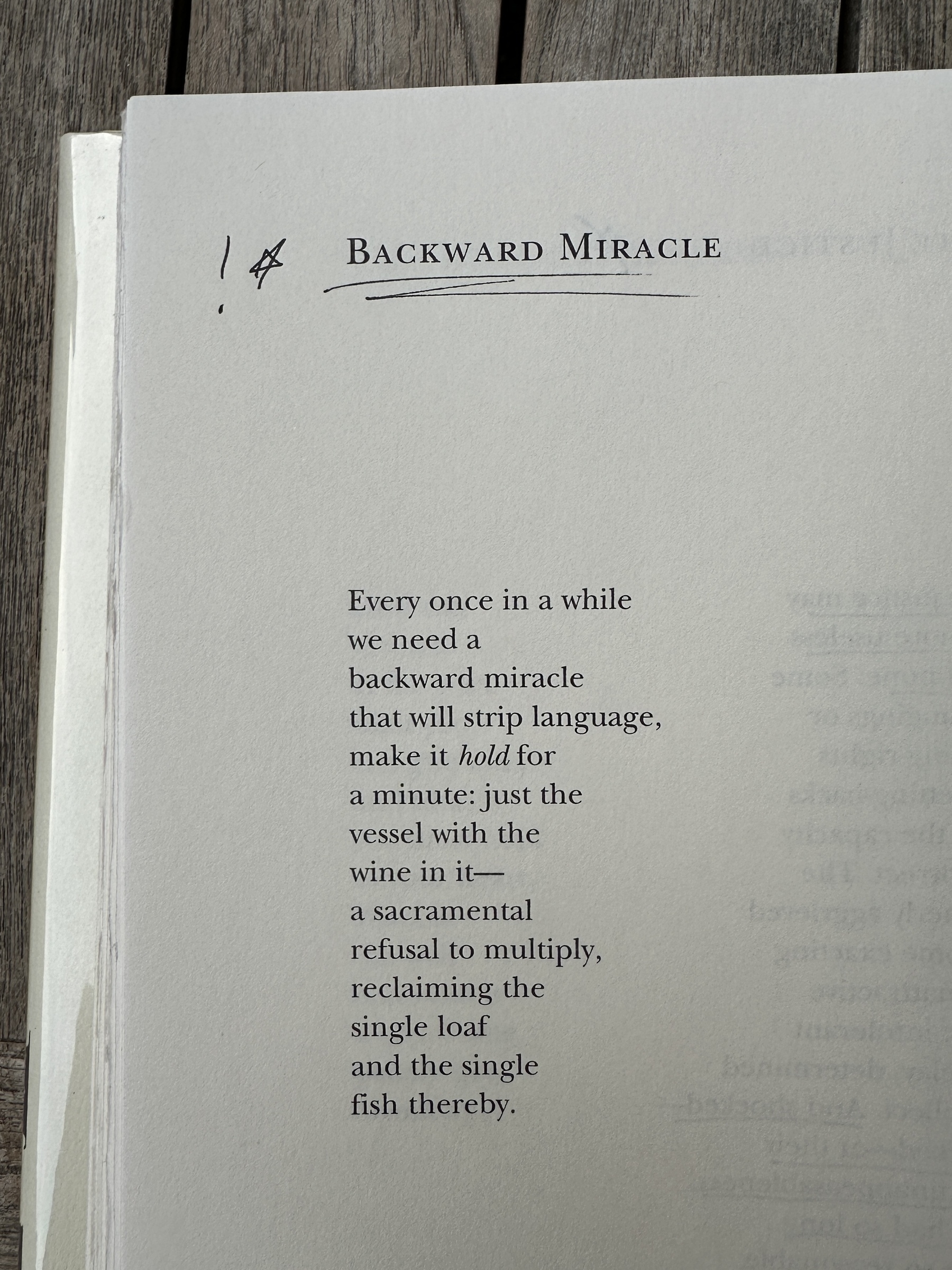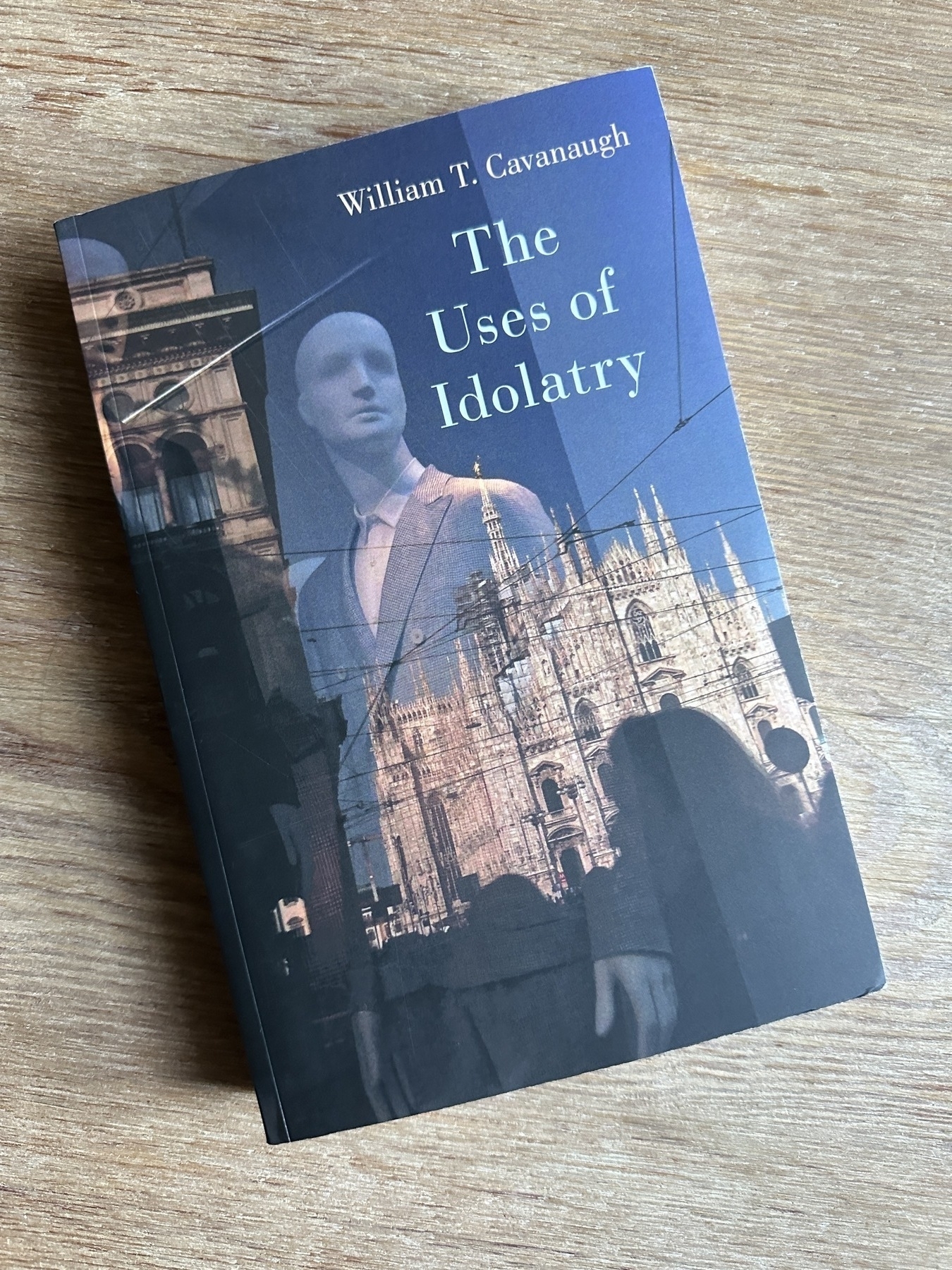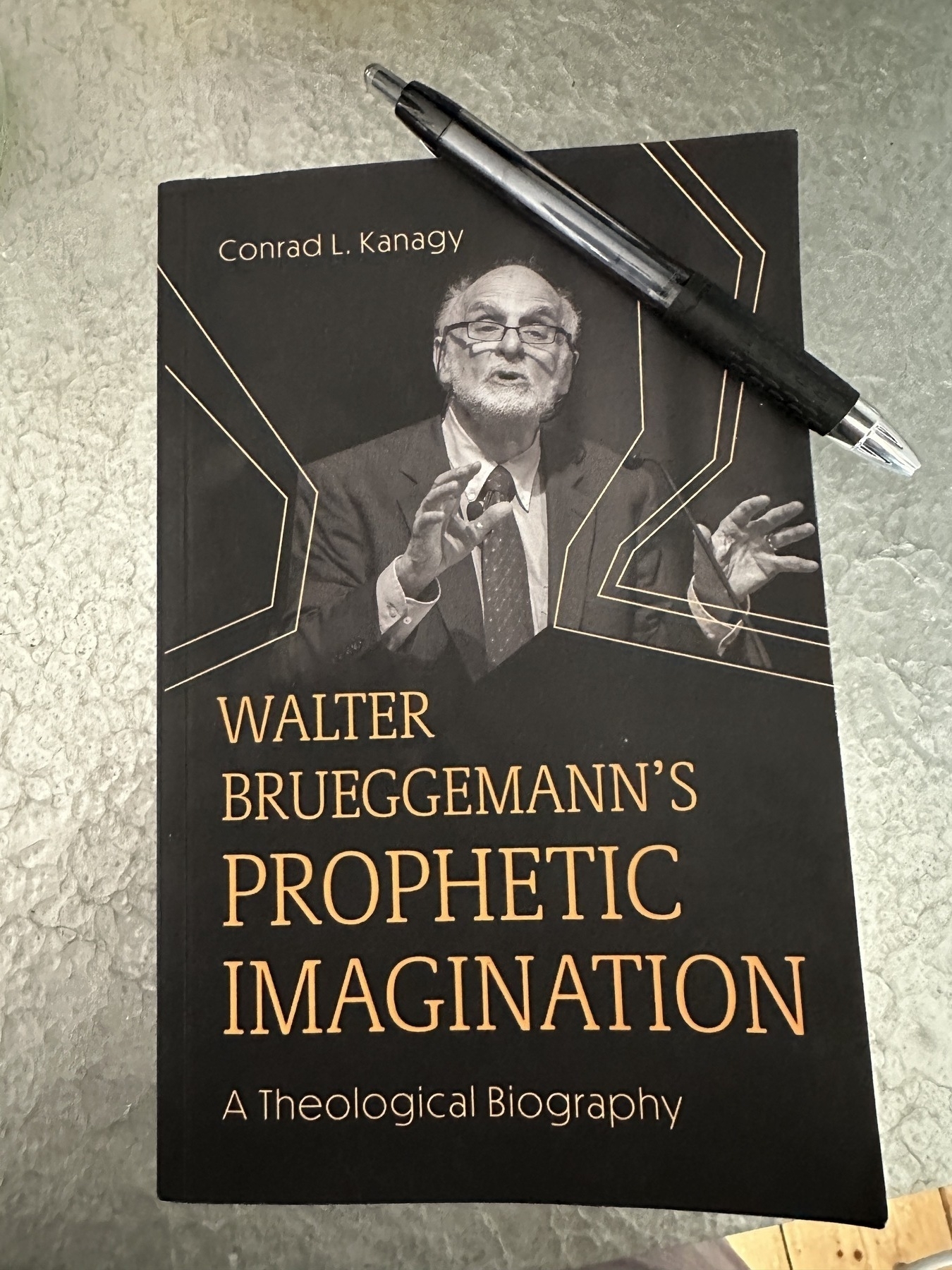Finished reading: The Best of It by Kay Ryan 📚
I’ve been reading this without an ounce of haste for two years. Not once did I feel the need to hurry up and finish it.

Finished reading: The Best of It by Kay Ryan 📚
I’ve been reading this without an ounce of haste for two years. Not once did I feel the need to hurry up and finish it.


Also finished reading: The Prophetic Imagination by Walter Brueggemann 📚
Some thoughts (and a poem from Kay Ryan) here.

Finished reading: Silence by Shusaku Endo 📚
Not a book that is easy to write about, which is why I’m looking forward to the Transcontinental Virtual Book Club chat with our friends in southern Oregon. It was timely, though, with reading Walter Brueggemann and trying (and mostly failing) to get into the Hulu show Shōgun. I think I’ll go rewatch Martin Scorsese’s adaptation now.
Here’s Scorsese in his foreword to the book:
It seems to me that Silence, [Shūsaku Endō’s] greatest novel and one that has become increasingly precious to me as the years have gone by, is precisely about the particular and the general. And it is finally about the first overwhelming the second.
…He understood the conflict of faith, the necessity of belief fighting the voice of experience. The voice that always urges the faithful—the questioning faithful—to adapt their beliefs to the world they inhabit, their culture. Christianity is based on faith, but if you study its history you see that it’s had to adapt itself over and over again, always with great difficulty, in order that faith might flourish. That’s a paradox, and it can be an extremely painful one: on the face of it, believing and questioning are antithetical. Yet I believe they go hand in hand. One nourishes the other. Questioning may lead to great loneliness, but if it exists with faith—truth faith, abiding faith—it can end in the most joyful sense of communion. It’s this painful, paradoxical passage—from certainty to doubt to loneliness to communion—that Endō understands so well, and renders so clearly, carefully and beautifully in Silence.
📚Happy New Book in the Mail Day! Celebrate accordingly


And now to the bookshelf for one of the best parts.
Eeny, meeny, miny, moe,
Catch a tiger by the toe.
If he hollers, let him go,
Eeny, meeny, miny, moe.
My mother told me
To pick the very best one
And that one is…
Currently Reading: Bird By Bird: Some Instructions On Writing And Life by Anne Lamott 📚
Finished reading: Walter Brueggemann’s Prophetic Imagination by Conrad L. Kanagy 📚
Not quite what I expected. I really enjoyed listening to the author talk about his book and about his admiration for Walter Brueggemann. And the book is peppered with good insights, both from Brueggemann and from Kanagy. But I don’t think it lived up to the genre of “theological biography.” Brueggemann’s fascinating family history in the Prussian Union and the German Pietist tradition, and especially his lifelong regard for his father’s ever-struggling but ever-genuine life as a pastor — these are mentioned repetitively throughout the book but I thought given little depth or storyline, and no real (narrative or theological) progression to follow. Neither is much insight given into Brueggemann’s actual theological writings.
Still, Kanagy presents a short, affectionate look at a prolific theologian who has shown great courage amid “ambivalence and ambiguity” — even, if not especially, amid his own. As Kanagy puts it, through his life Brueggemann has shown
the courage to tell the empire to be merciful, to show the empire its injustice, to remind the empire of its short-lived power, and to remind the empire that in front of it, [visible through the “prophetic imagination,"] lies an alternative reality that doesn’t have the empire’s name on it.
If you like, here’s a short clip where you can hear that straight from the horse’s mouth.


Currently Reading: Lao Tzu: Tao Te Ching by Ursula K. Le Guin 📚; and also: Walter Brueggemann’s Prophetic Imagination by Conrad L. Kanagy 📚
They’ve been standing next to each other on the queue shelf for months, and I’m curious what they’ve been talking about 🤓

Currently Reading: The Spirit Catches You and You Fall Down by Anne Fadiman 📚
The Hmong have a phrase, hais cuaj txub kaum txub, which means “to speak of all kinds of things.” It is often used at the beginning of an oral narrative as a way of reminding the listeners that the world is full of things that may not seem connected but actually are; that no event occurs in isolation; that you can miss a lot by sticking to the point; and that the storyteller is likely to be rather long-winded.… If a Hmong tells a fable, for example, about Why Animals Cannot Talk or Why Doodle Bugs Roll Balls of Dung, he is likely to begin with the beginning of the world.

Started and stopped reading: All Things Are Too Small by Becca Rothfeld 📚
Doubt I’ll pick it back up. I enjoyed the Commonweal interview with Rothfeld — at least I think I did; I’m only ever half paying attention to podcasts.
I think very often of a quote from one of CS Lewis’s essays, (wonderfully read by Ralph Cosham here):
When equality is treated not as a medicine or a safety-gadget but as an ideal we begin to breed that stunted and envious sort of mind which hates all superiority.…The man who cannot conceive a joyful and loyal obedience on the one hand, nor an unembarrassed and noble acceptance of that obedience on the other, the man who has never even wanted to kneel or to bow, is a prosaic barbarian.
Add minimalist tendencies to equality I suppose that’s what I expected to find — a praise for excess over minimalism and equality. But if that’s what Rothfeld is doing, it’s absolutely nothing like Lewis. The first essay not only shows no sign of Lewis’s sentiment, but seems to lack any sense of satisfaction or reverence at all.
Maybe I’m wrong, but I found no indication that this would improve through the book. And I’m too slow a reader to find out

Finished reading: The Age of Surveillance Capitalism by Shoshana Zuboff 📚
Because, ya know, I needed to reaffirm the horror of it all. 🤓
I have way more thoughts than I feel like writing down. And since very few of them are nice or happy anyway, I’ll skip most of them for now.
Zuboff is ardent (and absolutely correct) about the disorienting world that the surveillance capitalists — from Google on down the line — are creating more-or-less unimpeded, but she leaves you with a bit of an anxious disorientation, too. Democracy, individuality, personal freedom, community, even resistance — although these words and ideas are peppered throughout the book, they lack any flesh-and-bone quality.
Fortunately, those aren’t the things I read it for, and my own anti-surveillance project now enjoys some fresh vigor.
My new mantra, jumping off one of Zuboff’s subheadings, is Be the friction you hope to see in the world. The world needs more friction than it currently and increasingly avoids, and that will require more unpolished faith, and more gritty resurrections. And if you plan on doing any of this yourself, you might take heart from a quote from Karl Jaspers which I am once again thrown back upon:
The truly real takes place almost unnoticed, and is, to begin with, lonely and dispersed. . . . Those among our young people who, thirty years hence, will do the things that matter are, in all probability, now quietly biding their time; and yet, unseen by others, they are already establishing their existences by means of an unrestricted spiritual discipline.